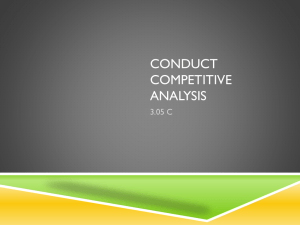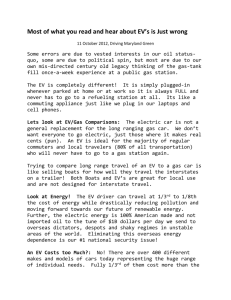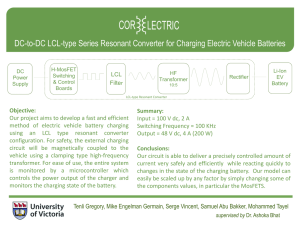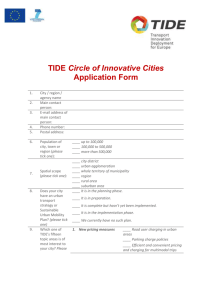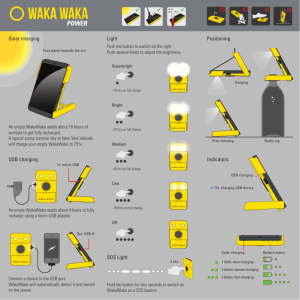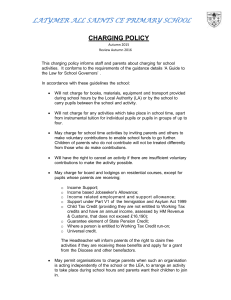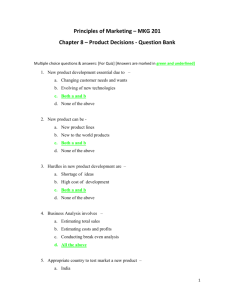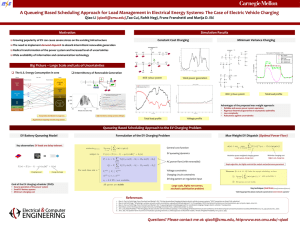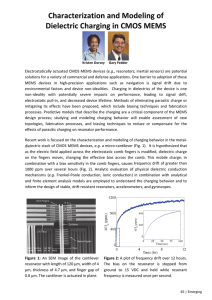Usage of Energy Storage Systems in Electrical Resource
advertisement
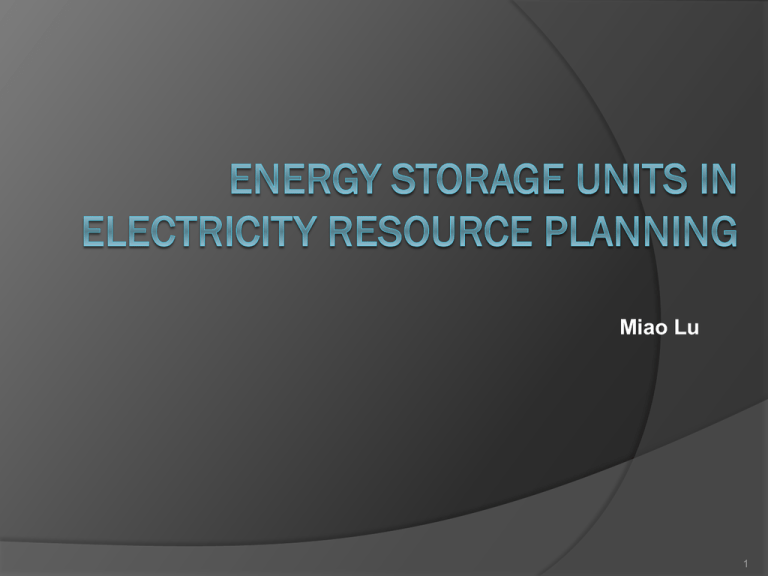
Miao Lu 1 Content Overview Load Models II. Economic Dispatch III. Disturbance and Recovery IV.Demand-Side Management V. Energy Storage Units VI.Unit Scheduling VII.Charge & Discharge Constraints I. 2 Chronological Load Model Load is modeled as the sum of individual demands It specifies the load at every hour of the period Distinguishes peak and off-peak conditions 3 Load Duration Curve (LDC) Model Sorts the chronological loads in order of decreasing magnitude Quantify the total energy required in terms of the area under the curve 4 Economic Dispatch Economic dispatch determines the best way to minimize the generator operating costs total generation = total load + losses 5 Power Grid Disturbance An example of simple 4-bus system Disturbance occurs between bus 1 and bus 2 Power output has to increase elsewhere in the network to make up the losses 6 Power Grid Disturbance Frequency changes as a result of sudden generation loss 7 Frequency Response Initially the system frequency will decrease as energy stored in the rotating masses is transformed into electric energy Within seconds governors respond, increasing power output Usually the cost of producing electricity will be increased because the dispatch is no longer optimal 8 Marginal Cost Curve Plots the incremental $/MWh as a function of MW Generators have limits on the minimum and maximum amount of power they can produce 9 Demand-Side Management (DSM) Implementation of programs that modify the demand of the system Focus to strategically reduce electricity demand at the time of peak loads to minimize production costs 10 Energy Storage Units Used to minimize total production costs Two options are possible: Replace expensive thermal units serving the peak load Reliability in case of sudden forced outage in other units 11 Energy Storage Unit Scheduling Operation of an energy storage unit is a cycle consisting of two phases Charging phase Generating phase 12 Energy Storage Unit Scheduling Power generated from the storage units is used to displace more expensive thermal units used during peak load The excess energy available from the less costly generation units is used for charging the storage units, for later use 13 Charge-Discharge The amount of energy that can be used for charging is limited by charging capacity 14 Energy Storage Constraints Energy stored is a function of efficiencies Es=nc*nt*Ec Es: Energy Stored nc: Efficiency of the charging nt: Efficiency of the transmission network Ec: Expected energy for charging 15 Discharge Constraint Et=ns*Ec ns=ng*nc*nt^2 ng: Efficiency of the generation phase nc: Efficiency of the charging phase nt: Efficiency of the transmission network ns: the overall efficiency of the storage– generation cycle Ec: Expected energy for charging 16 Questions 17 References http://energystorage.org/system/files/resource s/eac_nationalgridenergystoragestrategy_jan2 014.pdf http://energy.gov/sites/prod/files/2013/12/f5/Gri d%20Energy%20Storage%20December%202 013.pdf http://www.sandia.gov/ess/publications/SAND2 012-9422.pdf https://courses.engr.illinois.edu/ece588/hando uts/files/Lecture%2012%20Analysis%20of%20Storage.pdf 18

